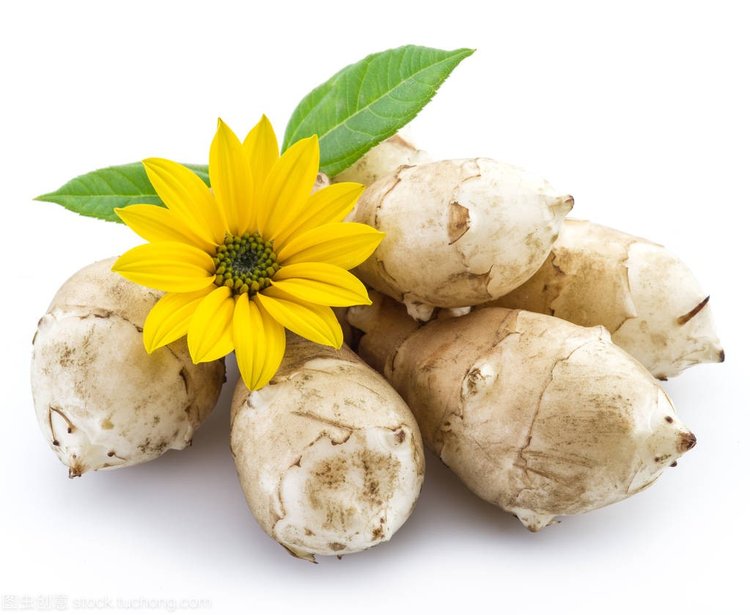1. Turmeric contains biologically active compounds with powerful medicinal value
Turmeric is the spice that gives curry its yellow color. It has been used culinary and medicinal in India for thousands of years. Recent studies have found that the rhizome of this herb does contain compounds that are beneficial to health. These are called curcuminoids, of which curcumin is the most important.
Curcumin, the main active ingredient in turmeric, has anti-inflammatory properties and is a powerful antioxidant. However, the curcumin component in turmeric is only about 3% by weight. Most studies based on this herb have used turmeric extract (which has the highest curcumin content) and have typically taken a dose of 1 gram per day. However, the amount of turmeric spice in food is difficult to reach this level. Therefore, if a therapeutic effect is desired, an extract containing a sufficient amount of curcumin should be taken.
It is important to note that curcumin is poorly absorbed into the bloodstream. However, consumption with black pepper, a natural substance that can increase the absorption of curcumin by 2,000 times, helps absorption. In addition, curcumin is fat-soluble and works better when consumed with high-fat foods.
Curcumin is a natural anti-inflammatory compound
Inflammation is a very important body function. It helps defend against foreign invaders and plays a role in repairing damage. Without inflammation, pathogens such as bacteria can easily take control of the body and kill us. While acute inflammation is beneficial, chronic inflammation can create problems and inappropriately fight the body's own tissues.
In fact, many chronic diseases are associated with long-term low-level inflammation, such as heart disease, cancer, metabolic syndrome, Alzheimer's disease, and various degenerative diseases. Therefore, any method that helps prevent chronic inflammation can help prevent or even treat these diseases. Since curcumin has excellent anti-inflammatory properties, it is as effective as some anti-inflammatory drugs.
3, turmeric significantly improve the body's antioxidant capacity
Oxidative damage is thought to be one of the causes of aging and many diseases. It involves free radicals, which are highly reactive molecules with unpaired electrons. Free radicals tend to react with vital organ substances such as fatty acids, proteins or dna. The reason antioxidants are beneficial is that they protect the body from free radical damage. Curcumin happens to be a powerful antioxidant that counteracts free radical damage. In addition, curcumin can promote the activity of the body's own antioxidant enzymes.
4. Curcumin improves brain-derived neurotrophic factor
Curcumin can improve brain function and reduce the risk of brain diseases. It used to be thought that neurons could not divide and proliferate after early childhood. However, this is now known to happen. Neurons have the ability to form new connections, but in specific areas of the brain, and can proliferate and increase in number. One of the main drivers of this process is brain-derived neurotrophic factor (bdnf): a growth hormone that promotes brain function. Many common brain disorders are associated with a decrease in this hormone, such as depression and Alzheimer's disease.
Interestingly, curcumin can increase brain-derived neurotrophic factor levels in the brain. This can effectively slow down and even reverse certain brain diseases and diseases of aging associated with decreased brain function. In addition, it can also promote memory and make people smarter.
5, curcumin reduces the risk of heart disease
Heart disease is one of the biggest risk factors for death. Curcumin can help reverse the process of heart disease. The main benefit of turmeric for the heart is to promote endothelial function. Endothelial dysfunction has been shown to be a major driver of heart disease, associated with the inability of endothelial cells to regulate blood pressure, blood clotting and other factors. In addition, curcumin can reduce inflammation and oxidation, which is also an important cause of heart disease.
6, curcumin has anti-cancer effect
There are many forms of cancer, and taking curcumin supplements can have a positive effect on some of these cancer types. Researchers are exploring the possibility of using turmeric as a cancer treatment herb. It affects the growth, development and spread of cancer cells at the molecular level. It has been found to reduce angiogenesis and metastasis and promote cancer cell death.
7, curcumin can be used to prevent and treat Alzheimer's disease
Alzheimer's disease is a common degenerative disease of nervous tissue and a major cause of dementia. Unfortunately, there is no ideal treatment for this disease. Therefore, prevention is particularly important. Curcumin has been found to have a preventive effect on Alzheimer's disease because it crosses the blood-brain barrier and acts directly on the brain, binding to Alzheimer's disease plaques, dissolving those plaques and preventing them from continuing to form.
8. Curcumin supplementation is good for patients with rheumatoid arthritis
There are different types of rheumatoid arthritis, most of which involve inflammation of the joints. Because of its anti-inflammatory properties, curcumin is helpful for people with rheumatoid arthritis.
9, curcumin helps prevent depression
Curcumin slows down the rate of aging and prevents chronic diseases related to aging


